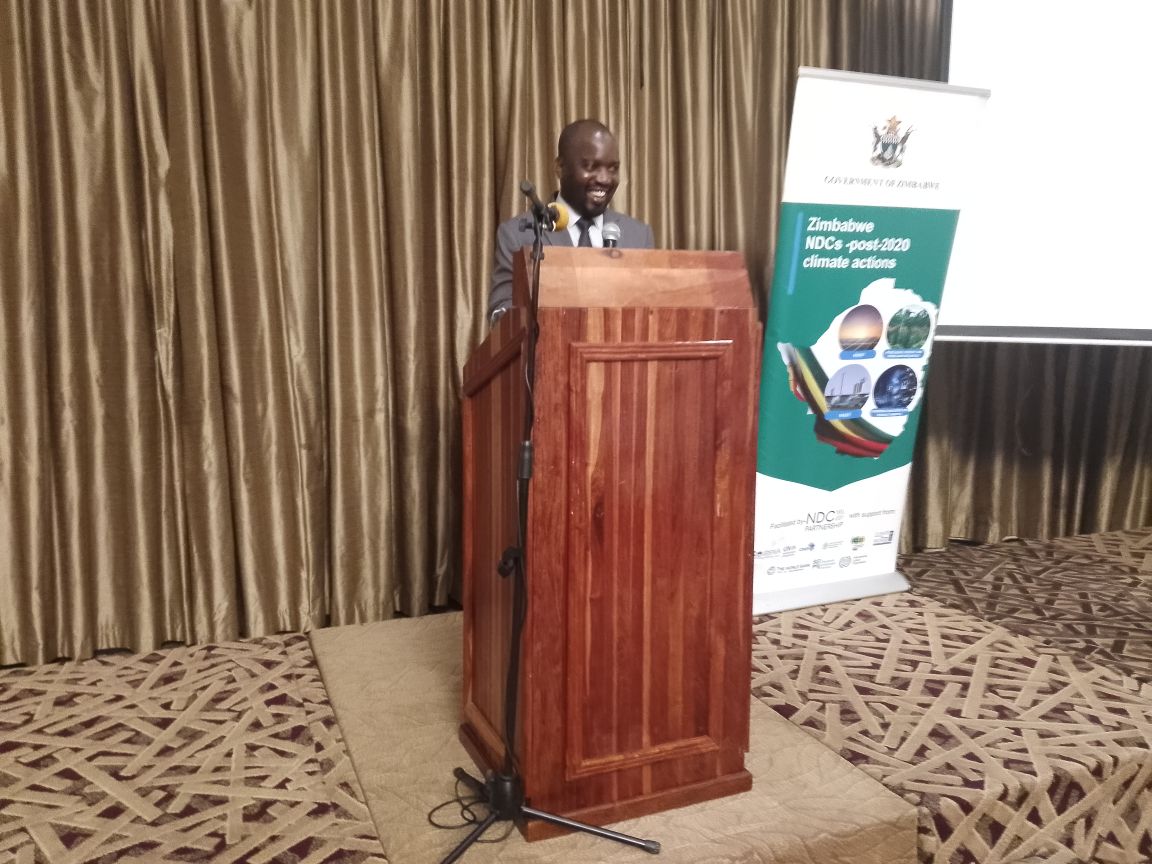|
Getting your Trinity Audio player ready...
|
Byron Adonis Mutingwende
SNV Zimbabwe in partnership with the Ministry of Environment, Climate and Wildlife is implementing a project titled “Amplifying the Role of Youth, women, and People with Disabilities in Implementing Zimbabwe’s Nationally Determined Contribution (NDC) and National Adaptation Plan (NAP).”
This comes as the impacts of climate change and variability are increasingly evident through more frequent occurrences of droughts, cyclones, floods, hailstorms, and heat waves.
In his address at the inception workshop for the project in Harare today, Tatenda Mutasa, a Climate Change Scientist – Action for Climate Empowerment National Focal Point with the Ministry of Environment, Climate, and Wildlife said climate change poses a significant threat to the global economy, with developing countries like Zimbabwe facing heightened vulnerability due to their limited adaptive capacities, insufficient climate knowledge, and heavy reliance on climate-sensitive sectors such as Agriculture, Water, and Forestry.
“Addressing this climate challenge necessitates novel perspectives, innovative development approaches, and collaborative partnerships across nations, sectors, and societies. Zimbabwe has taken steps to confront climate change by signing and ratifying the United Nations Framework Convention on Climate Change (UNFCCC) and the Paris Agreement. The country is bolstering its institutional framework for climate change management and has developed various climate-related policies, strategies, and action plans, including the National Climate Policy, National Climate Change Response Strategy, Low Emission Development Strategy, National Climate Change Learning Strategy (NCCLS), and the National Adaptation Plan.
“In its Revised Nationally Determined Contribution (NDC) communicated to the UNFCCC, Zimbabwe pledged to achieve a conditional 40% emission-reduction target by 2030. This NDC represents progress towards a comprehensive economy-wide NDC by including sectors like Energy, Waste, Industrial Processes and Product Use (IPPU), and Agriculture, Forestry, and Other Land Use (AFOLU). Additionally, the revised NDC outlines adaptation actions to address the country’s high vulnerability to climate change impacts. The Government has also developed a National Adaptation Plan aimed at enhancing the country’s capacity in planning, integrating, implementing, monitoring, and evaluating adaptation initiatives,” Mutasa said.
In his address, while officially opening the workshop, Kudzai Ndidzano the Acting Director of the Climate Change Management Department in the Ministry of Environment, Climate, and Wildlife said there is a need to harmonize efforts with the Sustainable Development Goals (SDGs) to address the intricate relationship between climate action, sustainable development, and social inclusivity.
“Zimbabwe is fully dedicated to this endeavor, guided by the principles outlined in the Constitution of Zimbabwe, our own Vision 2030, National Development Strategy 1 (NDS1), and the 2030 Agenda for Sustainable Development. To effectively confront these global climate crises, we must embrace new perspectives, employ innovative approaches, and cultivate collaborative partnerships. By doing so, we can forge a path towards a resilient and sustainable future,” Ndidzano said.
Zimbabwe has developed a range of policies and strategies, such as the revised Nationally Determined Contribution, National Adaptation Plan, Youth Policy, Gender Action Plan, National Climate Change Learning Strategy, and many more. These policies and strategies align with the objectives outlined in the National Development Strategy 1 (NDS1) and the country’s constitutional framework, which prioritizes environmental conservation, social equity, and inclusive development.
“By embracing the fundamental principles embedded within these policy frameworks, we lay a strong foundation for a future that is both resilient and prosperous for every Zimbabwean.
“The project being unveiled today has the objective of empowering women, youth, and individuals with disabilities to effectively implement climate-related policies and strategies, including NDC and NAP. Through initiatives such as awareness campaigns, capacity-building programs, and platforms for sharing knowledge, this project aims to enable active engagement of marginalized groups in climate action. It aspires to establish a comprehensive knowledge-sharing platform, document impact stories, and foster inclusivity within Zimbabwe’s climate actions. By promoting meaningful participation and involvement of these groups, the project strives to create a more equitable and sustainable future for all,” Ndidzano added.






